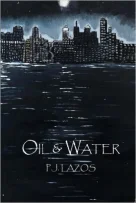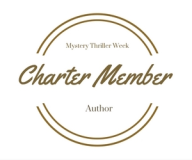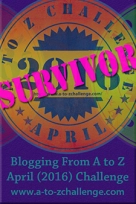
Today, February 14th, is Valentine’s Day, a universal day of love. But is there something more to Valentine’s Day than overpriced roses and chocolates? Let’s discuss.
The Greeks had seven different words for love which you can read more about here if you are interested. The cliff notes version goes like this:
eros — romantic passionate love;
philia — intimate, authentic friendship;
ludus — playful, flirtatious love;
storge — unconditional, familial love;
philtautia — self-love;
pragma — committed, companionate love; and
agápe — empathetic, universal love.
I’d like to focus on the last one, agápe, something in very short supply at this time in our collective history. Agápe is the love of everything: God, nature, our dogs and cats, the people who drive us batshit crazy, the glorious sunrise, a beautiful snowfall, anything in the world and beyond. If we’re ever going to get back to balance on this planet, we all need a little more agápe in our lives, and perhaps a little less individualism, but that’s a topic for another blog post.
This post is about swamp love. So what if the Greeks didn’t have a word for swamp love? A lot of them lived on islands; it may have been a given.
There are four types of wetlands in the U.S. and one of them is a swamp. The other three are marshes, bogs and fens. All are critical to clean water since wetlands serve as nature’s own little wastewater treatment plant.
While the regulatory definition of a wetland is complicated, the average person recognizes wetlands as wet and mucky places that hold standing water, i.e., not a housing developer’s favorite track of land. Therein lies the tension.
Wetlands are important for a variety of reasons: they control flooding, acting as a safe harbor for flood waters to recede slowly rather than rushing off downstream via stormwater drain conduits; they filter out toxins — such as heavy metals, oily contaminants and excess fertilizers and pesticides that would otherwise reach the rivers, streams and groundwater — by capturing them in their soils; and they provide a home to a variety of flora and fauna that thrive in watery places. Among other things, they’re beautiful.
Coastal wetlands act as a barrier between the mainland and the ocean, giving that vast body of water the space to expand and contract as storms and winds dictate, providing a much needed buffer in times of severe weather, while freshwater wetlands often act like the primordial soup of our humble beginnings for varieties of critters that need a sloshy place to get started. If you take anything away from the last paragraph it should be this: a healthy wetland ecosystem is great for the planet and all the humans, critters and vegetation that live on it.
February 2nd marked the 51st anniversary of the Ramsar Convention on Wetlands of International Importance, signed in 1971 in Ramsar, Iran. This inter-governmental treaty sought to assure that the world would conserve and protect its wetlands and the attendant resources. The U.S. joined the Ramsar Convention on April 18, 1987. https://www.fws.gov/international/pdf/factsheet-ramsar.pdf
Perhaps it is coincidence, perhaps not, but located in Southern Iraq and Iran lie the Mesopotamian Marshes, also known as the Iraqi Marshes, once the largest wetland ecosystem in the world — before they were systematically drained by Saddam Hussein — now reduced to 10% of their former glory. None of us knows what species of plants or animals were lost in the draining, but something tells me the world is a little poorer for it.
Of the 2,430 wetland sites designated worldwide, 41 of them are located in the U.S. February 2nd, the day the Ramsar treaty was signed, is globally recognized as World Wetlands Day.
Maybe it’s not time to drain the swamp at all, but to ensure it continues to thrive and grow.
Happy Swamp Love Day!
If you want to learn more about the Mesopotamian Marshes and the Marsh Arabs who live there, read her debut novel, Oil and Water, about oils spills and green technology, and yes, wetlands.












If you think it might be fun or helpful to have my followers (who total about 10k across my social media) meet you with a post you’d do for my site, here are general guidelines for guest blog posts: https://wp.me/p6OZAy-1eQ GUESTING
LikeLiked by 1 person
Oooh, fun! What would best suit, do you think? You cover a lot of ground in your blog.
LikeLiked by 1 person
if you check out the link, it has suggestions, but basically whatever you like. I check email most often, so best to catch me there if you have questions &/or ideas
LikeLiked by 1 person
Great, will do and thanks!👍🙏🙌
LikeLiked by 1 person
ContactdaAL at gmail dot com
LikeLiked by 1 person
👍
LikeLiked by 1 person
wonderful important post, Pam — thanks for informing
LikeLiked by 1 person
You are most welcome, da-AL! 💕
LikeLiked by 1 person
Wonderful post, Pam! I plan to share this with my class in the future. It’s such important information,
PS: The link to the list of wetlands in the US is no longer working. Here’s the alternative I found in a search of the site: https://www.fws.gov/search?$keywords=%22wetlands%22.
LikeLiked by 2 people
Thank you and thank you again, Carol! xox
LikeLiked by 1 person
💜
LikeLiked by 1 person
I liked the assorted words for love that the Greeks had – one for each day of the week it seems. Swamp love – that’s something unique and I didn’t know there was a day to commemorate wetlands. Sadly it must compete with Groundhog Day. We have a relatively new refuge wetland that opened in October 2020. It was once an industrial site along the Detroit River, except for a small portion of the refuge that was never used for industry and that portion is therefore the only pristine part of the Detroit River shoreline. I hope to visit it more this year. They had significant flooding each time it rained and it rained a’plenty last year. The picture of the reflection is beautiful Pam – you captured peace with your camera.
LikeLiked by 2 people
Thank you, Linda! Also, didn’t even take note that it was the same day as Groundhogs day!❤️🙏💗
LikeLiked by 1 person
Now you have a “trigger” to remember it forever Pam.
LikeLiked by 1 person
🥰🥰🥰
LikeLiked by 1 person
Very interesting Pam. We’ve got to stop upsetting the balance before it’s too late.
LikeLiked by 2 people
true that, Michele, although I think that time is possibly upon us. :0(
LikeLike
Valentine’s Day turned into agape – deep and abiding love for all that Mother Nature provides. We have a few wetlands here in my slice of the world, treasured places. Belated VD hug to you Pam xx
LikeLiked by 2 people
And to you dear Susan!♥️❤️💗💕
LikeLike
Thanks for this interesting piece. We have a lovely though small wetland-style nature reserve about 10 mins away – it used to be used by builders etc as a rubbish dump, and when developers began to work on a disused factory site nearby was threatened to be made part of that – thankfully it was far too boggy, and had Reed Beds so a group of interested neighbourhood people managed to take the matter up and as far as the top of government, and it has been preserved! The wilder swampy bits are now a bit more contained, as ponds, the reed beds flourish and are home to various species including Reed Buntings, we have several rare plants in the drier bits and moer than one rare damselfly and butterfly. Developers can be a real threat – and when they were working near the now-nature reserve we could hear pile drivers – so how safe those houses are….! But, anyway, this little island of wetland and meadows has been saved for now, thankfully. Small steps toward preservation! https://trap-grounds.org.uk/
LikeLiked by 2 people
Sounds like a much needed little slice oh heaven, Mari!👏🥰💕
LikeLike
Thanks for showcasing the wetlands, Pam. They sure do need our love ❤
LikeLiked by 3 people
Thanks, Rose, and happy Valentine’s Day to you. 🥰
LikeLiked by 2 people
Gavin Maxwell’s ‘A Reed Shaken By The Wind’ is another brilliant read about the Mesopotamia Marshes and the Marsh Arabs, written before they were drained.
LikeLiked by 3 people
Thank you, Mick. I’m going to write more about that part of
LikeLiked by 2 people
Oops, hit send too soon. I’m going to write more about the Marsh Arabs when I do a sequel to Oil and Water so thanks for the resource!🙏💕
LikeLiked by 2 people
You’re welcome. It’s a great book and a remarkable picture of a way of life now, I presume, pretty well gone.
LikeLiked by 1 person
Sad but probably true.
LikeLiked by 1 person
First, I’ve never known that the Greeks have so many words for love, Fascinating and very knowledged.
It is undoubtedly a significant swamp day for us all. We have to carry it on consciously.
I was a young man those days though I have heard about this Eskandar Firouz and his effort to do such a good act. Of course, Ramsar is one of the most beautiful areas in northern Iran. He could do it well as he had an excellent connection to the Shah of Persian and his very famous Prime Minister Ala. 😉 Brilliant post, dear Pam. Thank you. 🙏💖
LikeLiked by 2 people
I think I need to learn more from you on this, Aladin. I’m fascinated by the wetlands in Iran/Iraq and included them in my novel. I hope to visit them someday — if the world ever calms down — and see what the restoration efforts look like. The cradle of civilization! ❤️🙏💕👏♥️
LikeLiked by 1 person
Oh, yes! The cradle of civilisation. We both might travel there three thousand years ago; then, we could get the goal. 😜🥰🙏💖🤗
LikeLiked by 1 person
Probably that’s where we met, Aladin. I had a psychic once tell me I had a lifetime in Persia as a whirling dervish! Kind of makes sense, eh?😂😂😂
LikeLiked by 2 people
Hi Pam – they’re essential to nature – they help so much … plants, insects, birds. The draining of the Mesopotamia Swamp was appalling … I just hope we learn to look after our wonderful earth … take care and thanks for this – I loved seeing all the Greek words for love … cheers Hilary
LikeLiked by 3 people
Hilary with your cheery spirit the Greeks should have given you your own word for love! 💗 💕 ❤️ And your country wins with the most Ramsar sites — 175!!👍👍👍
LikeLiked by 1 person
Well of course I’m cheery – I’m hilarious at times too?! Do we – well that’s great … I know our volunteers do wonders helping the conservation societies and organisations.
A while ago I heard that archaeology of a very early trackway (over 5,000 years ago) – ours here was younger, but the fact they had been preserved by being covered with water – was ignored … as there was no obvious protected Ramsar site here … strange – the archaeologists recorded this ‘error’ … so could be noted for other sites. The earth changes so much … cheers Hilary
LikeLiked by 1 person
On that note, when I was in Ireland I saw a many thousands year old leathery man who had been found in a peat bog practically intact, skin and all. Cause of death was blunt trauma to the head. The crazy part was because of the anaerobic conditions his skin was still on the bones, leathery looking but there!
And yes, you are also hilarious! 🙏😍😂
LikeLiked by 1 person
Having lived in a wetland area of the New Forest for many years before moving to the smoke I can well understand their fascination. My dad used to rail against drainage schemes making him unpopular with those who wanted to plant trees for cash crops. I didn’t appreciate his irritation then and these the self same organisations eg the Forestry Commission hold themselves out as saviours. Still at least they’ve come to the party 40 years late
LikeLiked by 2 people
40 years better late than never, Geoff. Did you know the UK has the most Ramsar sites with 175?
Must be all those fens! 👏👏👏
LikeLiked by 1 person
It’s basically Scotland …
LikeLiked by 1 person
Aha, now I get it! 😂🤣
LikeLike
Lady Pam… May i send you the biggest hug for turning this neatly from Valentine’s Day to Wetlands. Something we all need to love a little more xxxxxxx
LikeLiked by 3 people
Ah and I’m sure you have quite a few of note on your home isle, Lady Shey. Looks like 51 Ramsar sites. Congratulations to you and your entire country for making the world a healthier place.♥️😍🥰💕🥃💃🏻
LikeLiked by 2 people
xxxxxxxxxxxxxxxx
LikeLiked by 1 person
🤗❤️🥰
LikeLike
I love your swamp! We can’t live without wetlands. How come so many people don’t know this? დ
LikeLike
I’m surprised that Trump didn’t withdraw the USA from that treaty. He probably didn’t know about it. Otherwise he would have.
LikeLiked by 4 people
Maybe, Neil. Wetlands themselves are often overlooked like poor step-cousins, but they are so important to the ecosystem.
LikeLiked by 3 people